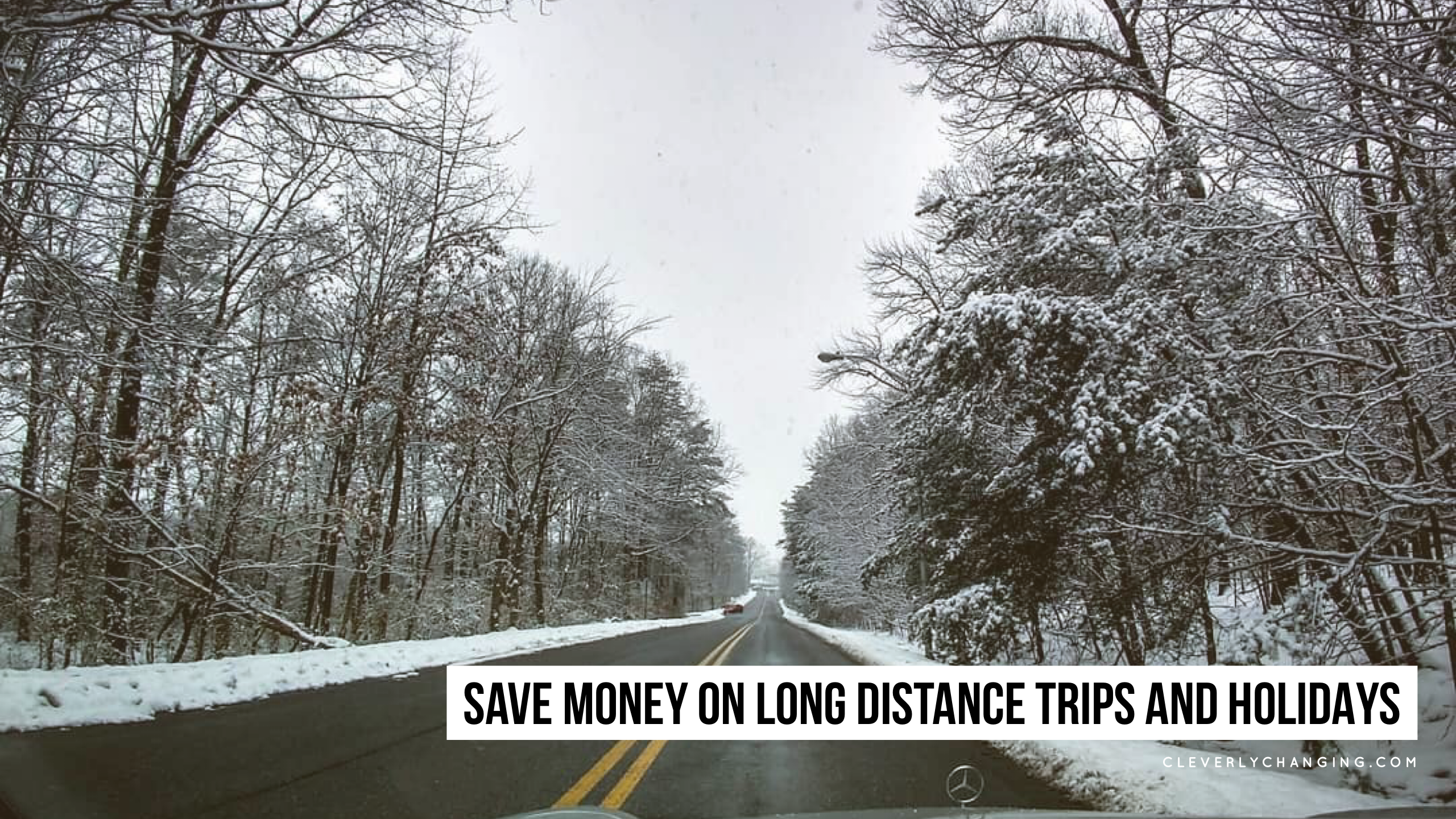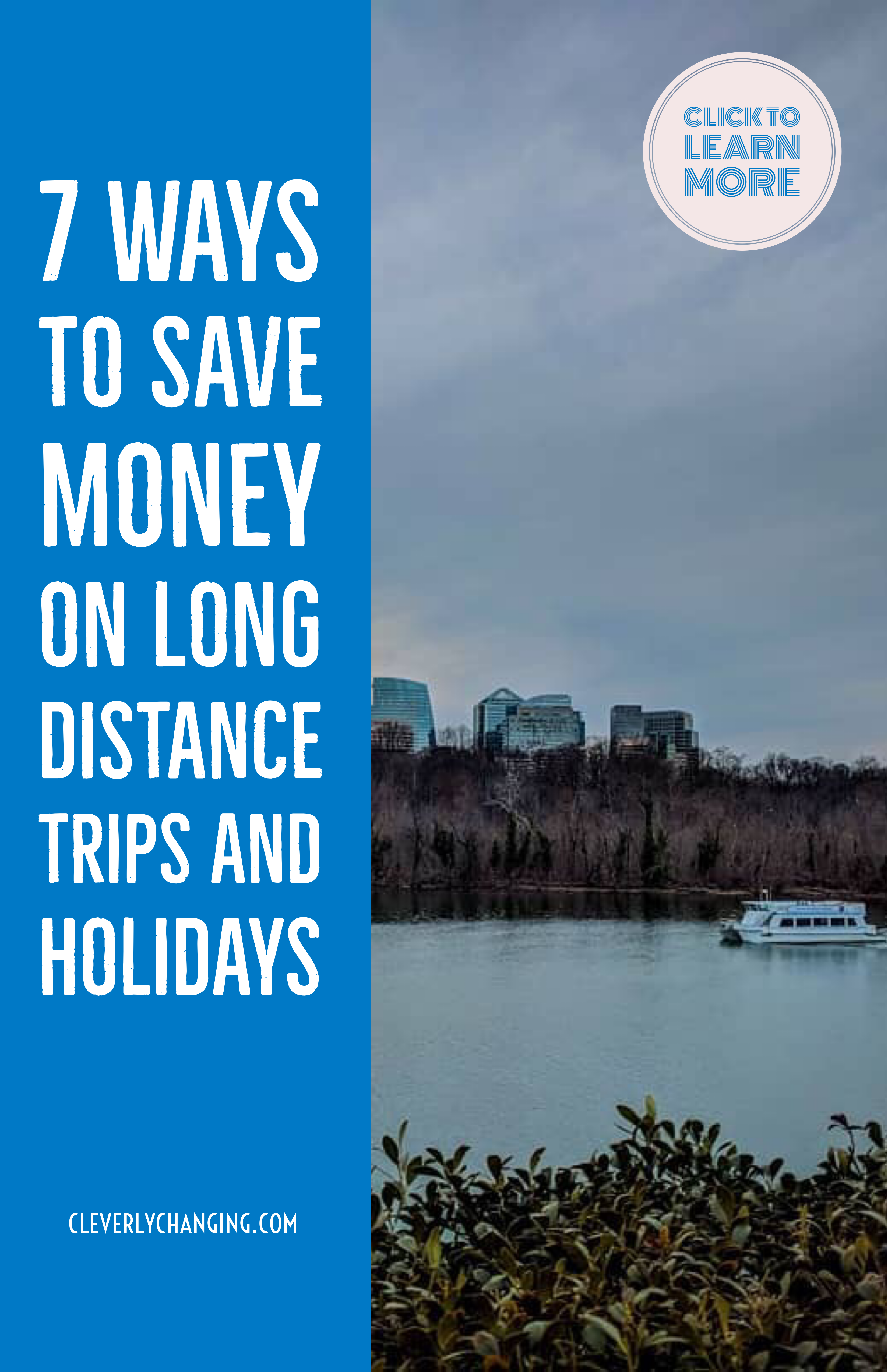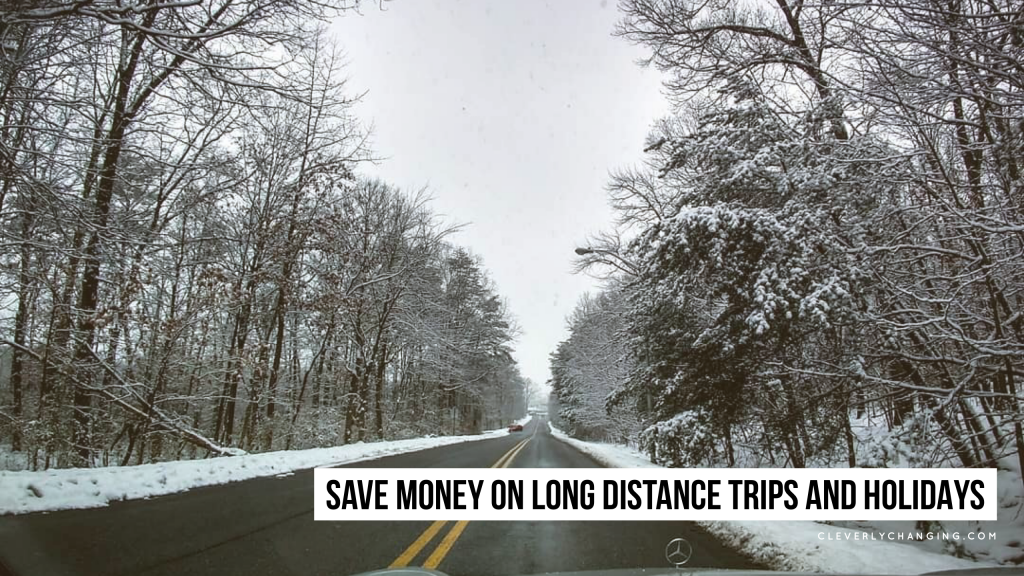
Whether you’re traveling abroad by plane, or going on an extended road trip around your country, every long-distance trip comes with a set of expenses that needed to be considered within a well-rounded budget. With so many spending categories to allocate funds towards, it can be easy to overspend or underestimate how much the trip will cost beforehand. On the other hand, it’s also possible to assume that you’ll need much more than you actually will, causing you to overlook some of the options that could have allowed you to save money. Although you may be attracted to the lure of the “money is not an issue” approach, looking for ways to reduce unnecessary expenses without sacrificing the quality of your travel experience is always a worthwhile effort. Here are 7 ways anyone can get more value out of their vacation budget and save money on long distance trips:
Carefully Compare Flight Tickets
While some people will choose to drive themselves on road trips, or take a train/bus/boat to their destination, the majority of tourists who go on long distance trips will travel via plane. Thus, it’s only right that we should suggest starting your saving efforts by choosing the most cost-effective flight tickets. As a preliminary step, you could first determine the cheapest time of the year to fly to your chosen destination. For example, the cheapest time to book flights to New York is usually late January to late February. Once you know when you’re going to be flying, you can start comparing exact quotes from different airlines. Some airlines are known for offering cheap flights to certain cities. Building on the previous example, Porter Airlines has established a reputation for providing some of the most affordable flights to New York.
Take the Naturalist Approach
The convenience of booking a penthouse suite in a 5-star hotel that’s located in the middle of a downtown district might seem appealing, but how much value are you really getting in return by spending a huge chunk of your budget on a hotel room? There are usually smaller satellite cities and towns that surround major cities and provide much cheaper hospitality rates. To take that concept even further, you could go full naturalist mode and turn your vacation into a camping trip. A campsite is always going to be much cheaper than a hotel room. Plus, you’ll have a chance to truly bond with and experience the destination in all its glory, as opposed to being stuck within the confines of a busy metropolis the entire time.

Book Accommodations and Reservations Well in Advance (Or, Look for Last Minute Deals)
The further you book accommodations in advance, the lower the rates will be. This rule of thumb applies to virtually every airline, hotel chain, or other hospitality & travel related company. However, it’s important to note that there’s a point beyond which you won’t obtain any additional discounts. Generally, the sweet spot is about 1-4 months before the departure date. In other words, if you book 6 months in advance, you’ll probably get roughly the same discount percentage as you would if you booked 4 months in advance. Of course, the departure date and time of year will factor into the final price as well. Try to avoid booking less than 2 weeks in advance, as this will usually leave you with the least affordable tickets in the timeline. Another way to get the lowest possible ticket prices is to take advantage of “online only” specials. In rare cases, you may be able to take the opposite approach, landing last-minute deals as passengers and guests abandon their reservations and leave them up for grabs.
Have Some Local Currency on Hand
While most of the world has moved on to storing their money in digital forms and using cards and apps for payment processing, the old saying “cash is king” still reigns true in many places on Earth. In fact, if you want to be able to negotiate with local merchants and take advantage of the best deals on local food and entertainment, you might need cash on hand to make that happen. More specifically, try to convert some of your money into the local currency, as that will help you take advantage of the exchange rate and the strength of your home country’s currency. Furthermore, it is common for tourists to be overcharged when spending money in foreign currencies, so dealing in the local currency is the best way to ensure you’re always paying the same price as the locals in every transaction.
Use Credit Cards with Rewards Programs and Appealing Fee Structures
Using a credit card to pay for your trip expenses is a great way to keep your bank account balance from dwindling. If you think about it, there’s really no better time to use a credit card than during a vacation or an emergency, as most people reserve their credit for special occasions, investments, or backup funding. However, many credit cards charge foreign transaction fees, so try to use one that doesn’t and which also comes with an appealing travel rewards program.
Utilize City Passes and Tours
City passes will provide you with the tickets and reservations needed to see most of a destination’s popular tourist attractions within an all-inclusive package. This approach will usually be more cost-effective than purchasing tickets to each attraction separately, and it will give you a pre-made itinerary. Likewise, scheduling a guided city tour will let you consolidate the bulk of the must-see experiences into a single day of sightseeing. These services and package deals will help you easily organise your trip itinerary without aimlessly wandering around and overspending in the process.
Opt for Public Transportation
This might seem like a horrible compromise if you’re from an area where the public transit systems aren’t very desirable, but in most places, it’s really not as bad as it sounds. In fact, in many cities, taking the bus, train, or subway is sometimes the safest, most convenient, and fastest form of travel. When you add up the cost of renting a vehicle or transporting your own vehicle abroad, you’ll save a lot just by opting for a public transit pass of some sort. This approach will also help you get to know the locals by interacting with them en route to your destination. Plus, you’ll avoid the risk of being involved in an accident as a motorist.
Even the Wealthy Can Benefit from Saving Money
The term “wealthy” is relative. So, while you might feel like you’re financially comfortable enough to throw caution to the wind when it comes to managing your vacation spending habits, unless you’re actually a multi-millionaire or billionaire, the money you’re spending unnecessarily could probably be better spent or invested elsewhere.
Even within the context of the same vacation, the money you’re wasting through taking a disorganized or careless approach could be redirected into other purchases that will make the trip more entertaining. For example, instead of spending $1,000 per night on a hotel room, you could be spending that money on a night out on the town.
Ultimately, having a list of priorities never hurts when you’re traveling, regardless of your income bracket. Expertflyer.com is one other resource that can save you peace of mind. If someone cancels their flight you will get an alert so you can choose a seat where all the seats are occupied, this comes in handy if you don’t want someone sitting in the middle seat.

